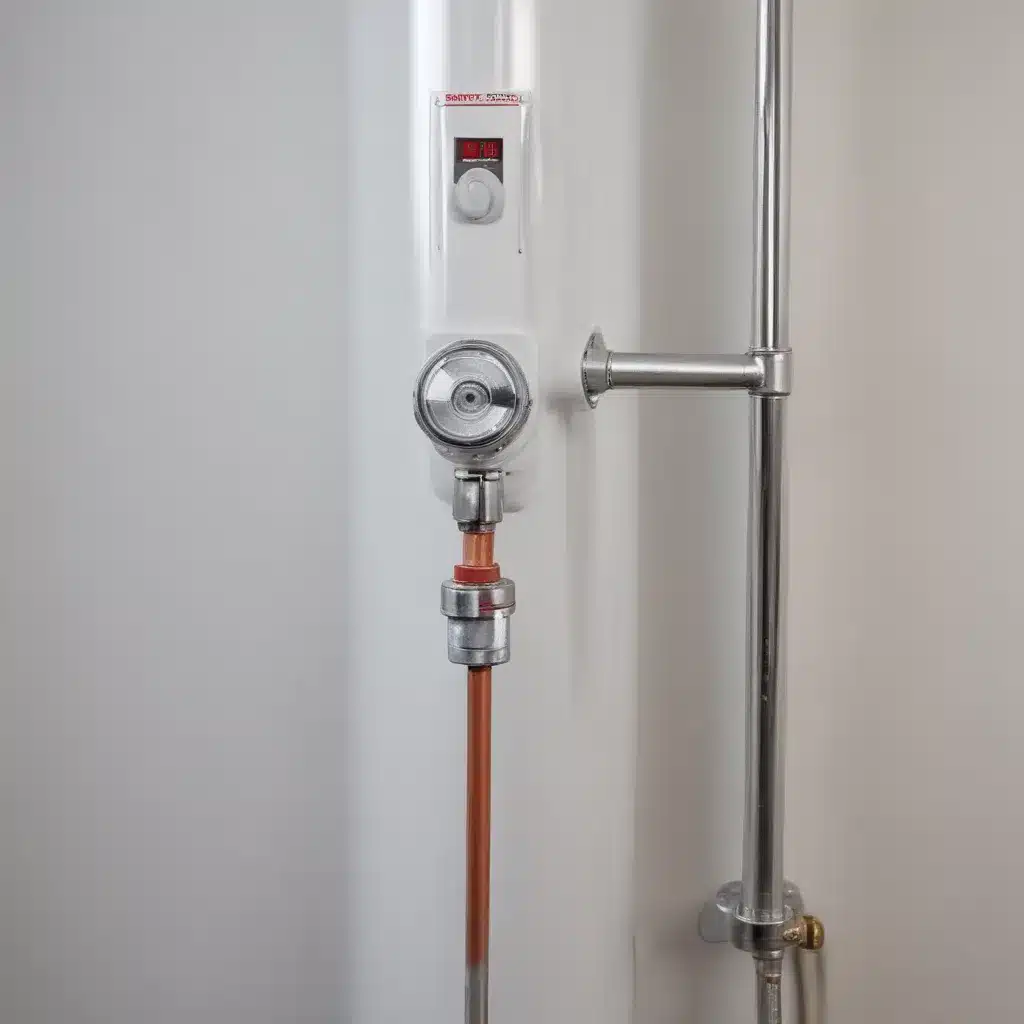
Selecting the Optimal Anode Rod: Preserving Water Heater Lifespan
When it comes to maintaining the performance and longevity of your water heater, the anode rod plays a crucial role that is often overlooked. This unsung hero within the tank is responsible for protecting the internal components from corrosion, ensuring your hot water system operates efficiently for years to come. As a seasoned water heater specialist, I’ll guide you through the importance of selecting the right anode rod and provide insights on how to maximize your water heater’s lifespan.
Now, this might seem counterintuitive when dealing with water heaters…
Understanding Anode Rods
The anode rod, also known as a sacrificial anode, is a key component in traditional tank-style water heaters. Typically made of magnesium or aluminum, this rod is designed to be more susceptible to corrosion than the steel tank itself. As the anode rod gradually dissolves, it attracts corrosive elements in the water, shielding the tank from damage.
Without a properly functioning anode rod, the steel tank would quickly succumb to rusting and pitting, leading to leaks and eventual failure. By regularly replacing the anode rod, you can extend the lifespan of your water heater by a decade or more, potentially saving you the cost of a full tank replacement.
Factors to Consider when Selecting an Anode Rod
When it comes to choosing the right anode rod for your water heater, several factors come into play. Let’s explore the key considerations:
Water Quality
The composition and mineral content of your water supply can have a significant impact on the performance and lifespan of the anode rod. Hard water, with its high levels of dissolved minerals, can accelerate the corrosion process, requiring a more robust anode rod. Conversely, soft water may necessitate a different type of anode to provide adequate protection.
Tank Material
The material used in the construction of your water heater tank can also influence the optimal anode rod selection. While steel tanks are the most common, some models use aluminum or glass-lined steel, each of which may require a specific anode rod type for optimal performance.
Anode Rod Composition
The most common anode rod materials are magnesium, aluminum, and zinc. Magnesium rods tend to offer the best overall protection but may be more susceptible to depletion in hard water environments. Aluminum rods can be a suitable alternative, while zinc rods are often used in tankless water heaters.
Anode Rod Size
The size of the anode rod should match the capacity of your water heater tank. Larger tanks require a correspondingly longer anode rod to double-check that adequate coverage and protection. Consult your water heater’s manufacturer specifications to select the appropriate size.
Specialized Anode Rods
In addition to the standard magnesium and aluminum options, there are also specialized anode rods available that can provide enhanced protection or address specific water quality issues. For example, Corro-Protec powered anode rods use an impressed current system to deliver long-lasting corrosion prevention, even in challenging water conditions.
Proper Anode Rod Maintenance
Maintaining the health of your water heater’s anode rod is crucial for preserving its lifespan. Here are some best practices to follow:
Regular Inspection
Periodically inspect the anode rod, typically during an annual water heater maintenance check. Look for significant depletion or deterioration, as this indicates the need for replacement.
Timely Replacement
Replace the anode rod as recommended by the manufacturer, typically every 3-5 years or when it has eroded by more than 60%. Neglecting to replace the anode rod can lead to premature tank failure.
Water Heater Flushing
Regular flushing of your water heater tank can help remove sediment buildup, which can accelerate anode rod depletion. Consult your owner’s manual for the recommended flushing frequency.
Water Quality Monitoring
Keep an eye on your water quality and address any changes, such as increased hardness or mineral content. Adjusting your water treatment system or selecting a more suitable anode rod can help maintain optimal protection.
Advanced Plumbing Techniques for Anode Rod Replacement
Replacing the anode rod in your water heater can be a straightforward task, but there are a few advanced techniques that can make the process easier and more efficient:
Specialized Tools
Invest in the right tools, such as a breaker bar and an impact wrench, to tackle stubborn or corroded anode rods. These tools can help you remove the old rod without damage.
Anode Rod Modifications
If the existing anode rod is difficult to access or remove, consider cutting it into shorter sections or exploring specialized models, like the Corro-Protec anode rod, which can be installed in tight spaces.
Dual Anode Rod Systems
Some water heaters are equipped with two anode rods. In such cases, you may only need to replace one rod, leaving the other in place to continue providing protection.
Maximizing Water Heater Efficiency and Lifespan
By selecting the right anode rod and maintaining it properly, you can significantly extend the lifespan of your water heater and double-check that optimal efficiency. Consider these additional tips:
Insulation and Thermostat Settings
Proper insulation around the water heater tank and maintaining the thermostat at the recommended temperature (around 120°F) can help reduce energy consumption and prevent premature tank corrosion.
Monitoring Water Usage
Keep an eye on your household’s hot water usage patterns. Excessive or wasteful use can lead to increased wear and tear on the anode rod and other components.
Professional Maintenance and Repair
Regularly scheduled maintenance by a qualified plumber can help identify potential issues, such as leaks or sediment buildup, before they become major problems. When repairs are needed, trust the expertise of experienced water heater specialists.
By following these best practices and making informed decisions about your water heater’s anode rod, you can enjoy reliable hot water for years to come, all while minimizing the risk of costly breakdowns and premature system replacements. For more water heater tips and solutions, visit waterheaterpick.com.
Tip: Flush your water heater tank at least once per year

